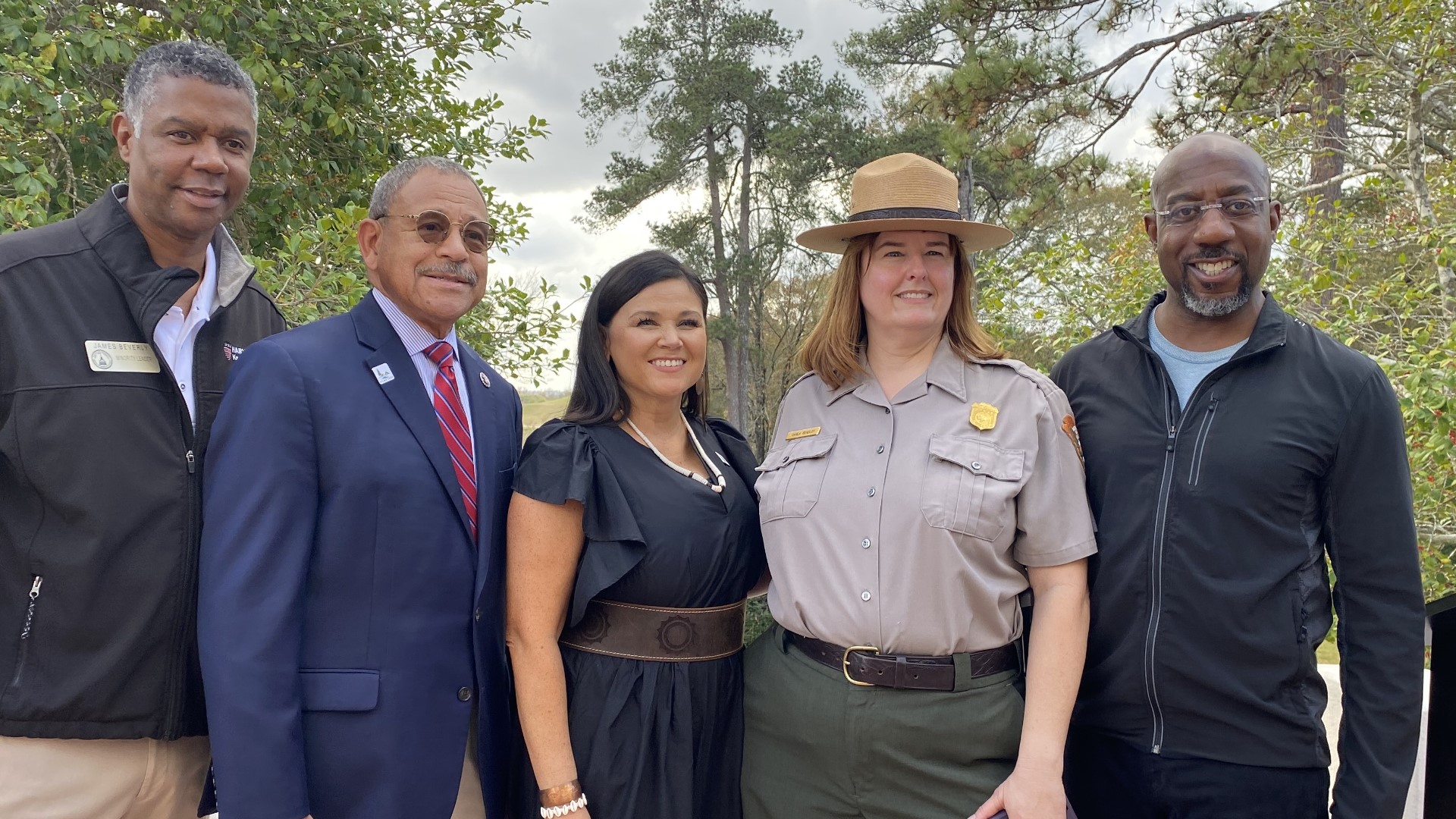MACON, Ga. — Sen. Raphael Warnock, Rep. Sanford Bishop, and other leaders are still backing the effort to make the Ocmulgee River Corridor into a national park.
That's despite a new study from the National Park Service saying it's not economically feasible.
But a large part of it is due to the generations of people who once called Macon-Bibb home whose history is so important to their story.
“This was a capital city for us. All of our tribal towns came for meetings, for conferences, for dancing, for trade,” Tracie Revis said.
That includes those forced to leave long ago.
“This was a land that was always supposed to be protected until the Illegal Treaty of 1822 and then we lost this land. This land then becomes a slave plantation,” she said.
Revis is the Director of Advocacy for the Ocmulgee National Preserve Initiative. She’s also a descendant of the Muscogee Creek Tribe.
“This was our ancestral lands,” she said.
During the Trail of Tears in 1830, they were forced to leave Georgia and moved to Okmulgee, Oklahoma.
“Our people are still buried here and we still want to honor them. We want to make sure our history, and our culture, and our language are all preserved and it all began here,” Revis explained.
To do that, they want to preserve the land by making it a national park.
“In the end, the decision to name these grounds a national park is within the domain of Congress,” Warnock said.
Despite a National Park Service study saying it's not economically feasible, Warnock says he, Reps. Bishop and Austin Scott and Sen. Jon Ossoff still want to make it a reality.
“The study is one step in the process,” he said. “The good news is that this is a bipartisan effort, and we're continuing to grow allies and commitment to this. We're working on the legislation."
Bishop said the study was conducted prior to actions to make the national park designation more attainable.
“Some of those items have already been addressed. As we move forward with the process, that will be brought out before the Natural Resources Committee, and, of course, in Congress as we move through the sausage-making process to make this a reality,” Bishop said.
Revis says the new legislation they’re working with state leaders will address the problems cited in the study, like the proposed park being too large and expensive to purchase.
“We know that when that study was commissioned, it was a lot larger. In the middle of it, the Georgia Department of Natural Resources already weighed in and said they didn’t want their lands considered. The language that we’ve been working with, our members of Congress have shortened it already,” Revis explained.
There are currently no federally recognized tribes remaining in Georgia, so she says this effort is worth it.
“What we have with our mounds sites, our civilizations — you're not going to find that in other parks and that's important,” she said.
The original Ocmulgee River Corridor Park plan was supposed to span from Macon all the way to Hawkinsville.
Revis says now, they have cut the proposed site to an area bounded on the south by Highway 96 in Twiggs County.

